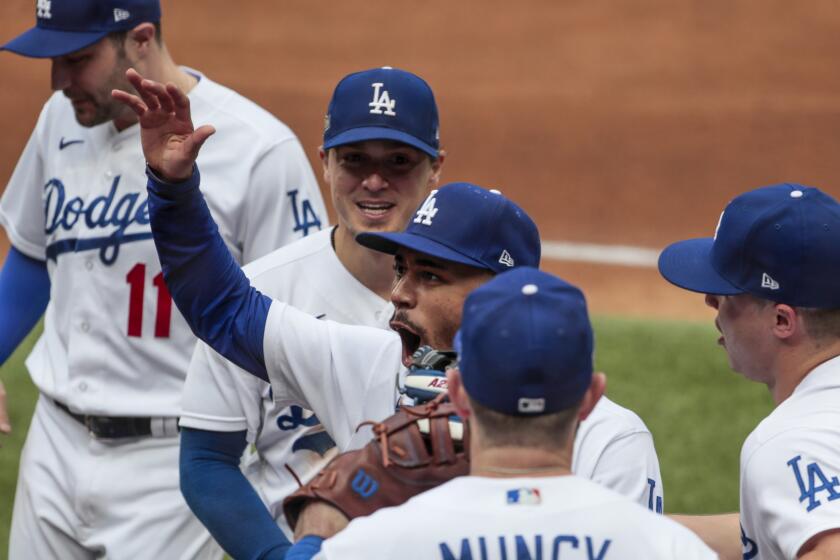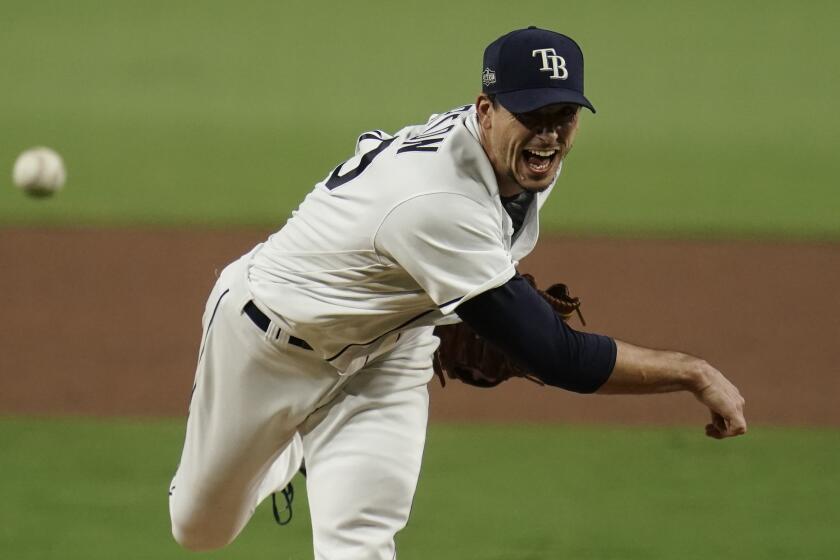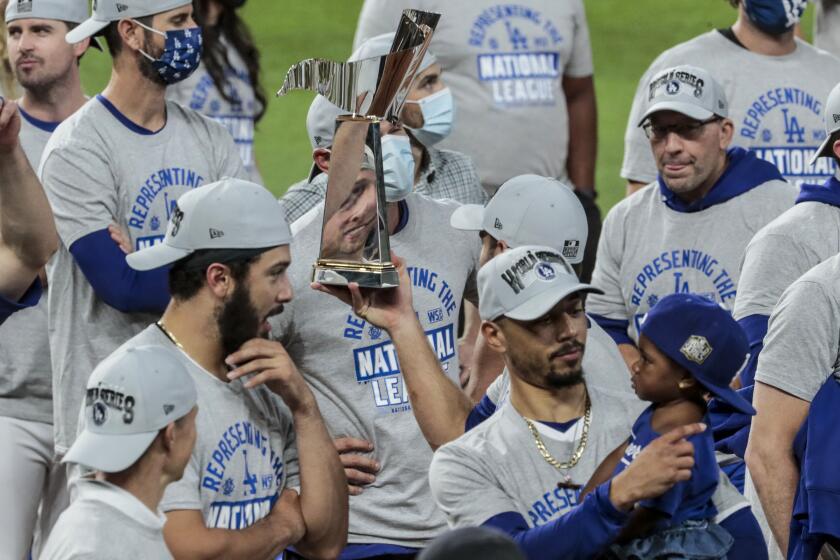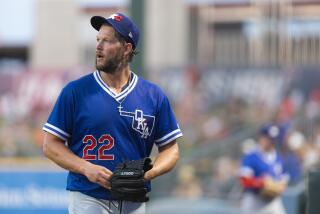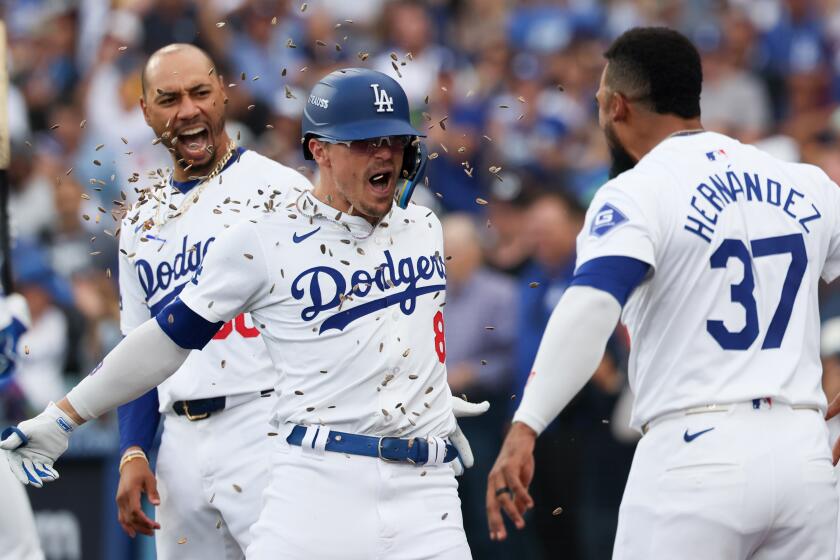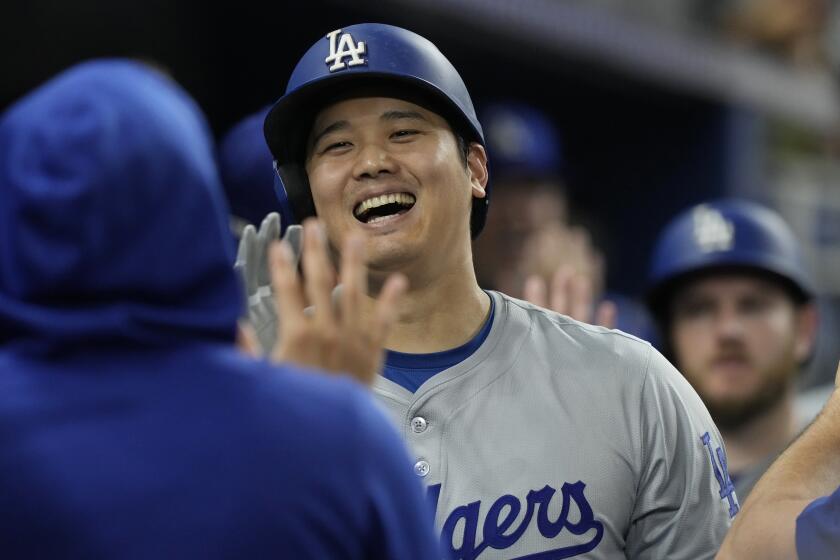Dodgers co-owner: Team revenues, fan experience will be ‘back to normal by 2022’
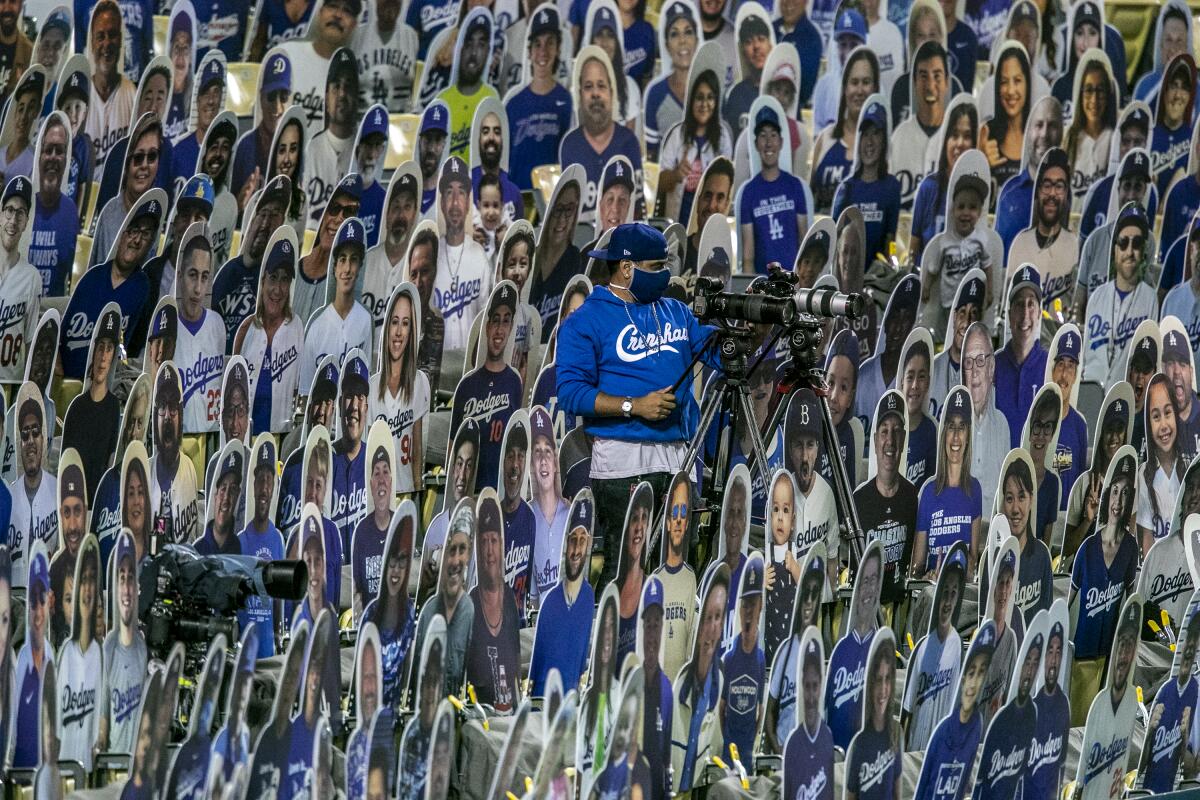
As the Dodgers and other teams work to determine how best to welcome fans back to the ballpark for the 2021 season, one of the Dodgers’ co-owners said Tuesday that the industry likely would not return to normal until at least the following year.
“I think we’re looking for 2022 to start to feel normal again, while we work through this in 2021,” Dodgers co-owner Todd Boehly said.
The “this,” of course, is the COVID-19 pandemic that forced baseball to play an abbreviated regular season, without fans in attendance. The Dodgers and Tampa Bay Rays will start a neutral-site World Series on Tuesday at Globe Life Field in Arlington, Texas.
The ballpark has a seating capacity of 40,300. The league limited capacity to 11,500 for the World Series, as a first step in hoping to persuade fans, mayors, governors and public health officials that games with crowds can be staged safely.
Boehly, speaking on a panel at the Milken Institute Global Conference, said the Dodgers are considering how to be proactive in working with public health officials and helping to lead a community response, rather than just waiting for guidance.
No huge roster surprises as the Dodgers try to ensure they have enough pitchers for a potential seven-game World Series against the Tampa Bay Rays.
The Dodgers already have allowed the city of Los Angeles to conduct large-scale coronavirus testing on the Dodger Stadium parking lot, with the team charging the city a rental fee of $1, according to city records.
“For us,” Boehly said, “we’re starting to think a lot about, come March, what are the proper testing protocols, and how are we going to get fans back into stadiums, and how can we test at scale? How can we have testing protocols that get people safely back into the seats, even if we have a vaccine?
“We think this is now going to be in our backpack of risks, and we’re going to have to figure out how to deal with it. Hopefully, quick, cheap testing is going to be one of the many tools that we have, and we’re seeing that develop faster and faster.”
Boehly said he was delighted to hear the crowd noise at Globe Life Field during the National League Championship Series. The Dodgers played the first round of the postseason at Dodger Stadium, without fans, but with the fake fan noise the league pumped into all ballparks this year.
“The sound really was almost metallic and echo-ey and kind of creepy,” Boehly said.
Many MLB teams embrace analytics for innovation and cost efficiency, but few have enjoyed the sustained success of the American League champion Rays.
Gov. Gavin Newsom announced Tuesday that California’s professional sports teams would be able to sell tickets to 20% of capacity if their county is in the orange tier, indicating moderate spread of the virus, and 25% of capacity if the county is in the yellow tier, indicating minimal spread. Neither Los Angeles nor Orange County has yet reached those tiers.
At 25% of capacity, the Dodgers could sell 14,000 seats.
MLB commissioner Rob Manfred has said in-stadium revenue amounts to about 40% of team revenues.
“You have multiple tiers of revenue, right? You have the in-stadium experience, you have the sponsorship, you have the merch, you have all that stuff that effectively has come to a screeching halt,” Boehly said. “You still continue to have the media dollars. Ultimately, there was an agreement reached between the players and our league that allowed everyone to move forward. I think there was more alignment between the players and the owners than the media would have suggested. We came through it and collaborated well.”
He said he did not expect the values of teams to decrease over the long term, even as revenues decline over the short term.
“We don’t expect to be back to normal next year by any means,” he said. “We would expect to be back to normal by 2022.
Why will the Dodgers capture their first World Series title since 1988? There’s a dependability about this team that was absent in previous years.
“If that means we’re going to have to plug some capital holes in order to carry the team forward, the good news is discount rates have fallen so much, so capital has gotten cheaper to access. I don’t think the terminal values of these clubs have changed as a result of the pandemic so, ultimately, I think you’re just solving for some short-term challenges.”
When Guggenheim Baseball formed to buy the Dodgers in 2012, Boehly was the president of the Guggenheim Partners financial services firm, and Mark Walter was the chief executive. The two men were among five individuals that initially formed the Guggenheim Baseball group, with Walter as the Dodgers’ chairman.
Boehly was the lead negotiator for Guggenheim Baseball on the Dodgers’ record $8.35-billion cable television deal. He since has left Guggenheim Partners and formed his own company, called Eldridge Industries, but he has retained his ownership stakes in the Dodgers and the WNBA Sparks.
More to Read
Are you a true-blue fan?
Get our Dodgers Dugout newsletter for insights, news and much more.
You may occasionally receive promotional content from the Los Angeles Times.

